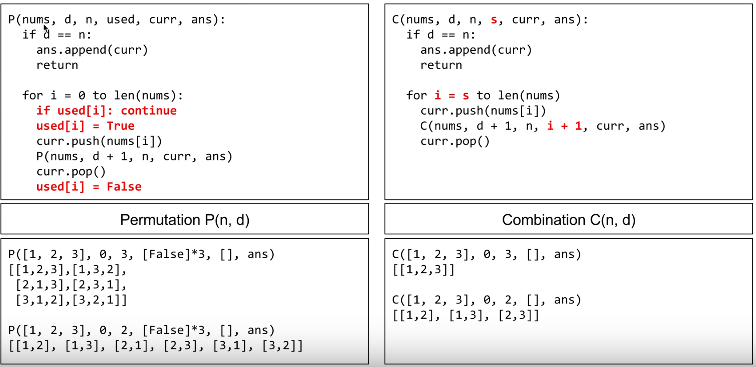Given an array arr[] of length N, the task is to find the median of the differences of all pairs of the array elements.
Example:
_Input: _arr[] = {1, 2, 3, 4}
_Output: _1
Explanation:
The difference of all pairs from the given array are {2 – 1, 3 – 2, 4 – 3, 3 – 1, 4 – 2, 4 – 1} = {1, 1, 1, 2, 2, 3}.
Since the array contains 6 elements, the median is the element at index 3 of the difference array.
Therefore, the answer is 1.
_Input: _arr[] = {1, 3, 5}
_Output: _2
Explanation:_ The difference array is {2, 2, 4}. Therefore, the median is 2._
Naive Approach: The task is to generate all possible pairs from the given array and calculate the difference of every pair in the array arr[] and store them in the array diff[]. Sort diff[] and find the middle element.
Time Complexity:_ O(N2*log(N2))_
Auxiliary Space:_ O(N2)_
Efficient Approach: The above approach can be optimized using Binary Search and Sorting. Follow the below steps to solve the problem:
-
Sort the given array.
-
Initialize low=0 and high=arr[N-1]-arr[0].
-
Calculate mid equal to (low + high) / 2.
-
Calculate the number of differences less than mid. If it exceeds the median index of the difference array, [ceil(N * (N – 1) / 2)], then update **high **as mid – 1. Otherwise, update **low **as mid + 1.
-
Repeat the above steps until **low **and high becomes equal.
-
Below is the implementation above approach:
-
C++
-
// C++ Program to implement -
// the above approach -
#include <bits/stdc++.h> -
#define ll long long -
**using****namespace**std; -
// Function check if mid can be median -
// index of the difference array -
**bool**possible(ll mid, vector<ll>& a) -
{ -
// Size of the array -
ll n = a.size(); -
// Total possible no of pair -
// possible -
ll total = (n * (n - 1)) / 2; -
// The index of the element in the -
// differece of all pairs -
// from the array -
ll need = (total + 1) / 2; -
ll count = 0; -
ll start = 0, end = 1; -
// Count the number of pairs -
// having difference <= mid -
**while**(end < n) { -
**if**(a[end] - a[start] <= mid) { -
end++; -
} -
**else**{ -
count += (end - start - 1); -
start++; -
} -
} -
// If the difference between end -
// and first element is less then -
// or equal to mid -
**if**(end == n && start < end -
&& a[end - 1] - a[start] <= mid) { -
ll t = end - start - 1; -
count += (t * (t + 1) / 2); -
} -
// Checking for the no of element less than -
// or equal to mid is greater than median or -
// not -
**if**(count >= need) -
**return****true**``; -
**else** -
**return****false**``; -
} -
// Function to calculate the median -
// of differences of all pairs -
// from the array -
ll findMedian(vector<ll>& a) -
{ -
// Size of the array -
ll n = a.size(); -
// Initialising the low and high -
ll low = 0, high = a[n - 1] - a[0]; -
// Binary search -
**while**(low <= high) { -
// Calculate mid -
ll mid = (low + high) / 2; -
// If mid can be the median -
// of the array -
**if**(possible(mid, a)) -
high = mid - 1; -
**else** -
low = mid + 1; -
} -
// Returning the median of the -
// differences of pairs from -
// the array -
**return**high + 1; -
} -
// Driver Code -
**int**main() -
{ -
vector<ll> a = { 1, 7, 5, 2 }; -
sort(a.begin(), a.end()); -
cout << findMedian(a) << endl; -
} -
Output:
3
- Time Complexity:_ O(N*log(M)), where N is the number of elements and M is the maximum difference among pairs of elements of array._
- Auxiliary Space:_ O(1)_
- Attention reader! Don’t stop learning now. Get hold of all the important DSA concepts with the DSA Self Paced Course at a student-friendly price and become industry ready.
#arrays #mathematical #searching #binary search #frequency-counting #median-finding
